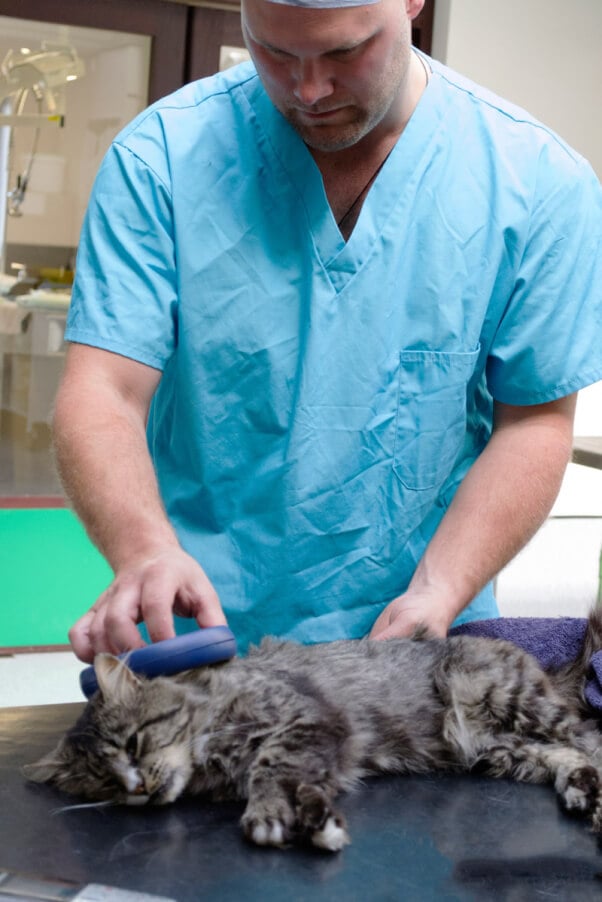‘Save This Life,’ A Microchip Company Closed—What Does That Mean for Animals?
Save This Life, an animal companion microchip registration company, abruptly shut down, potentially putting thousands of animals in danger. How do you know whether Save This Life’s closure affects your animal’s microchip? Find out.

Why Does It Matter That Save This Life Closed?
Typically, the first thing a veterinarian or animal shelter will do when a good Samaritan brings in a seemingly lost animal is scan them for a microchip. If the animal’s guardian had them microchipped and registered the serial number with the chip manufacturer, their contact information could be found, and they could easily be reunited. Without its functioning database, if an animal with a Save This Life microchip gets lost, their guardian’s information won’t be traceable.

Anyone whose animal’s chip was registered with Save This Life must register the chip number with another company to ensure that the information is available if and when needed.
Do Microchips Help Reunite Lost Animals With Their Families?
Yes, microchips can make a huge difference in bringing a lost dog or cat safely home. According to a study of more than 7,500 animals brought to 53 participating shelters, microchipped animals had a much higher chance of being reunited with their guardians. Microchipped dogs were reunited more than 50% of the time, while dogs without microchips were claimed by guardians only 21.9% of the time. Similarly, microchipped cats were reunited 38.5% of the time, compared to just under 2% for cats without microchips.

How Do I Know if My Cat or Dog Is Microchipped?
If you’re unsure whether your animal companion has a microchip, ask your veterinarian to scan them for one. The vet staff should be able to find out which company holds the registration and may be able to confirm the chip is registered to you quickly. If it’s not registered to you or the information is outdated, follow the registering company’s instructions to update it. Usually, registering and updating can quickly be done online.
Already know your companion’s chip number? If it starts with 991 or 900164, you likely have a Save This Life microchip and may need to register with a different company. You can also check the universal lookup tool maintained by the American Animal Hospital Association.
If your animal companion does not have a microchip, ask your veterinarian about implanting one. On average, having a microchip implanted costs around $30, plus a $12-to-$15 registration fee to add your animal’s ID to the national registry. Some free or low-cost opportunities are likely available in your area—ask a local vet or shelter about any programs in your community. After your veterinarian implants the microchip, it must be registered to link your animal back to you.
Microchips Are Great, but Take Other Precautions, Too
To keep animals safe, PETA recommends guardians never leave them outdoors without supervision. Microchipping is simply an additional safeguard for your animal—not a substitute for responsibly keeping an animal safe indoors and tagged.

